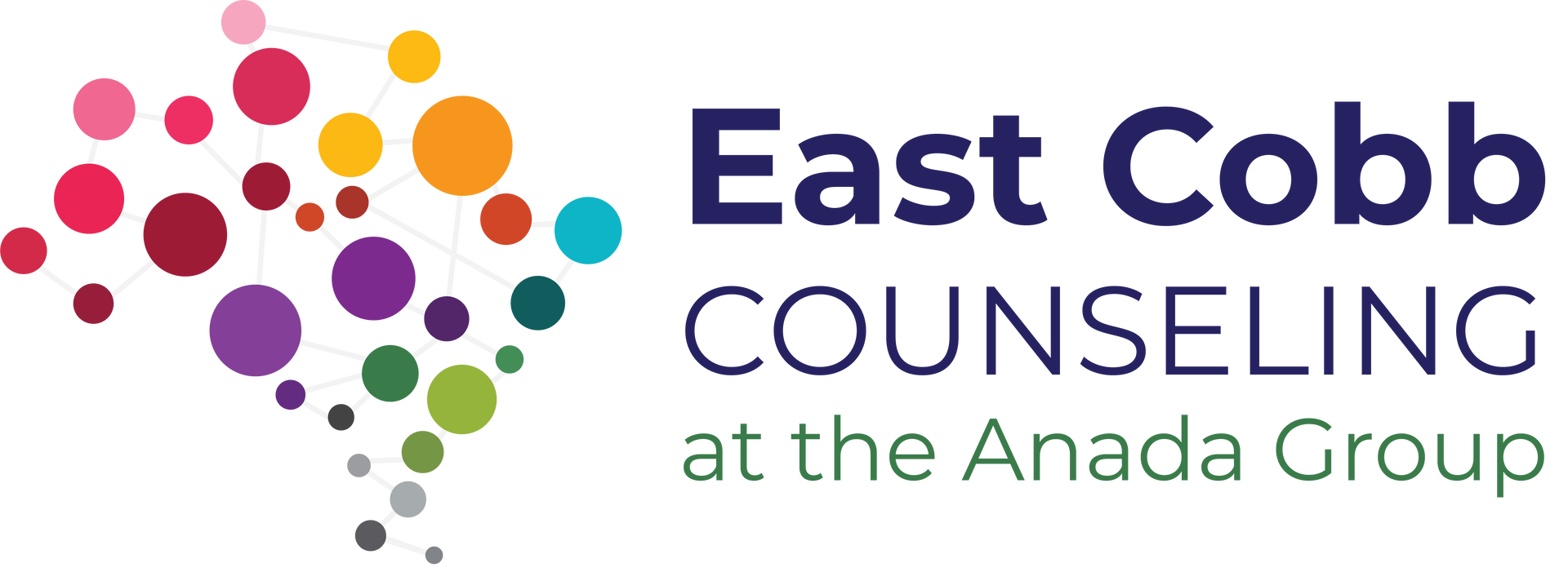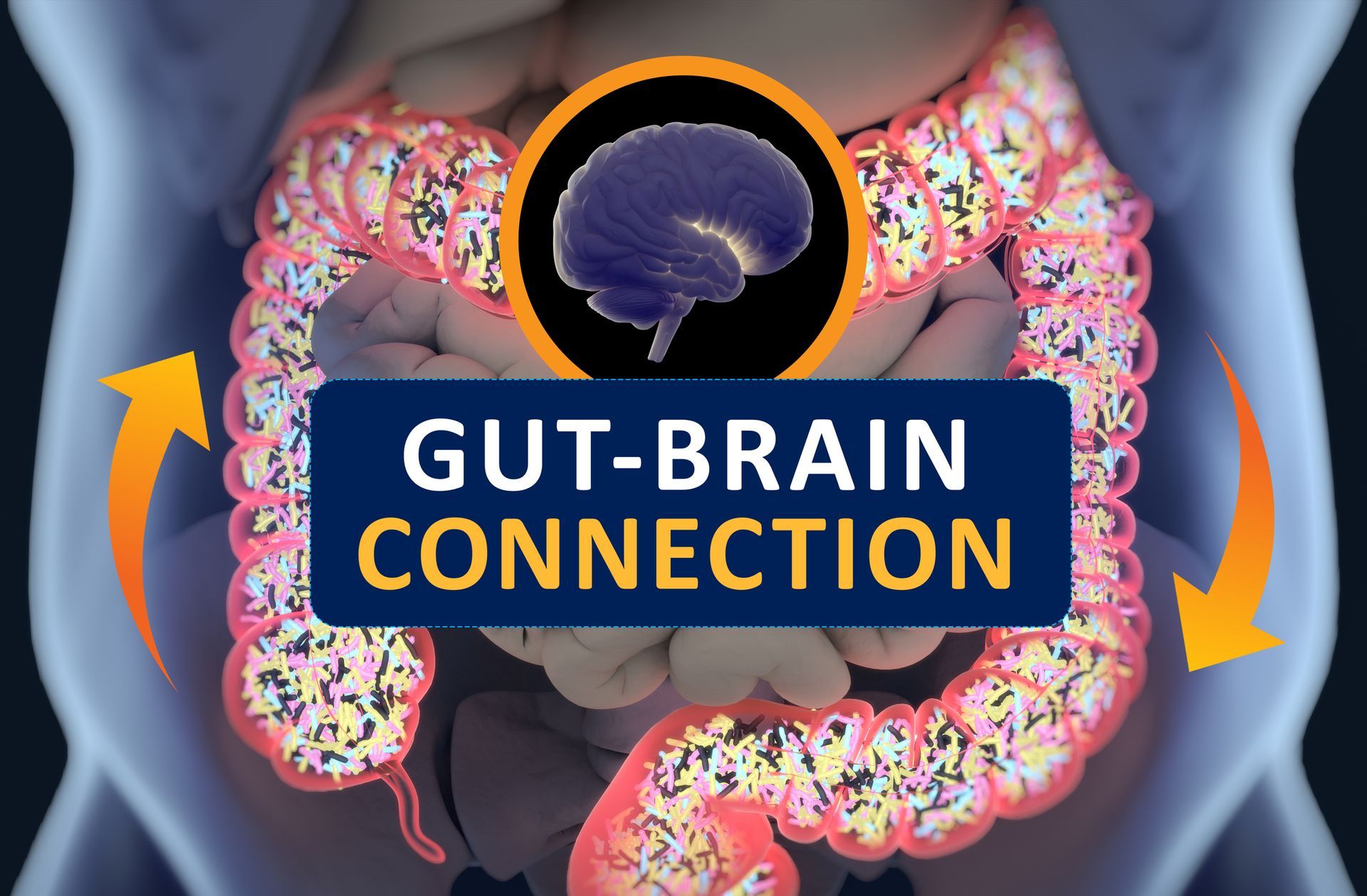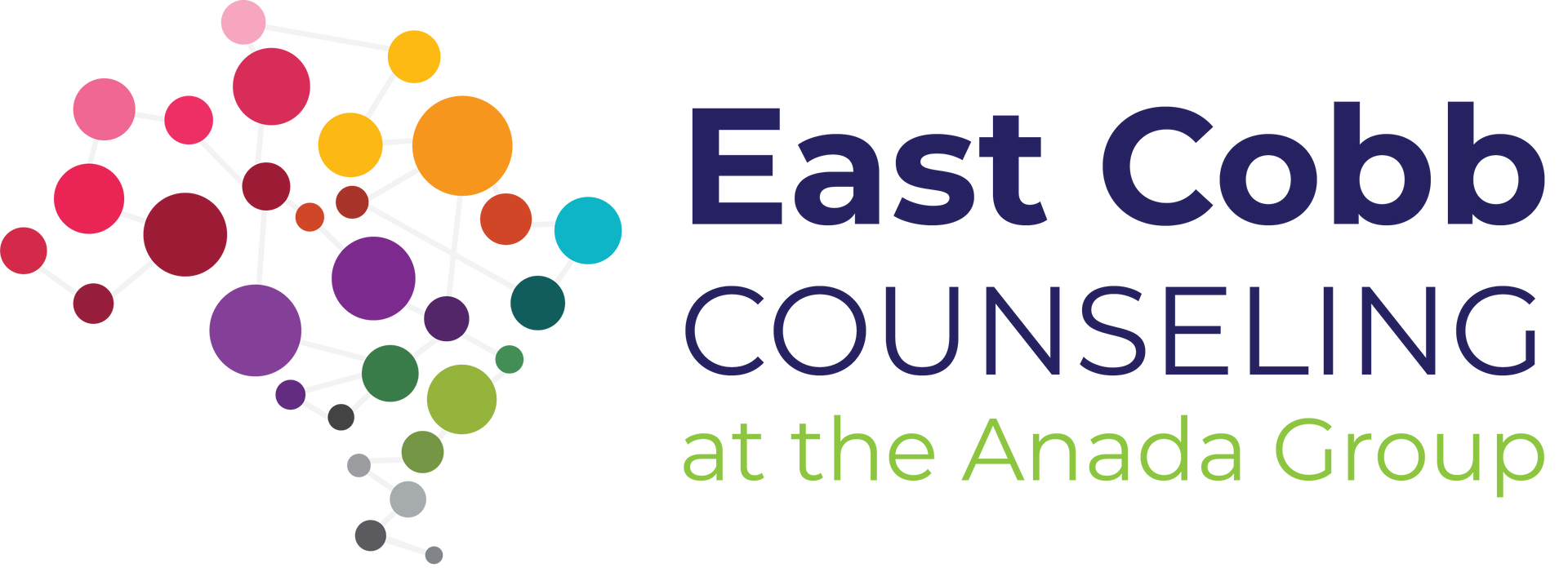In the news

Let’s be real: glucose doesn’t exactly have a glamorous rep. Say the word “blood sugar” and people instantly think of diabetes, insulin syringes, or trying to survive a 3 p.m. crash with stale vending machine snacks. But here’s the truth: glucose isn’t just about disease—it’s your body’s fuel, mood manager, sleep assistant, and muscle whisperer.
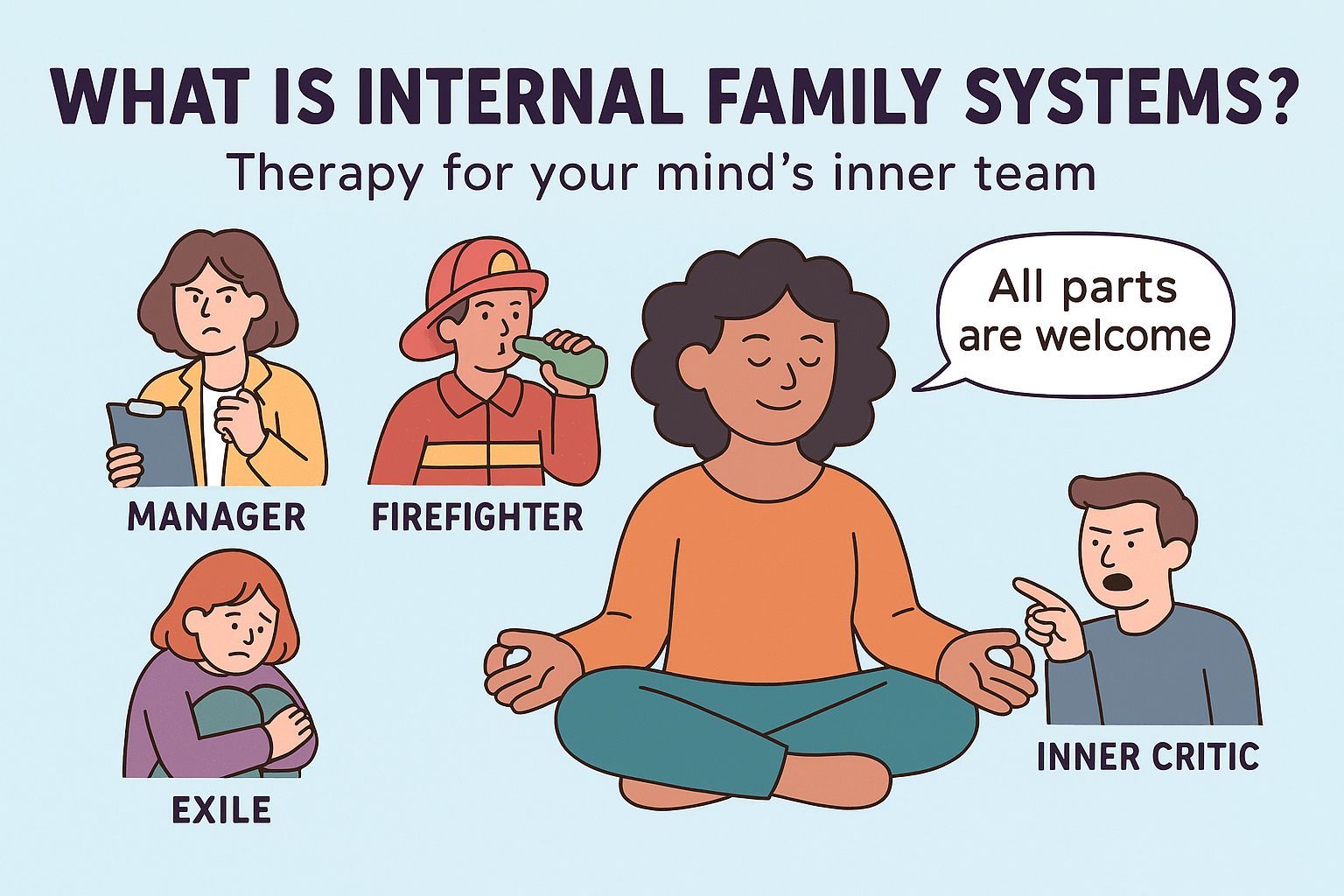
Author: Dr. Kimberly Seheult, PhD, LPC, CPCS, RPT, EMDR - May 1, 2025 Imagine your brain is like a house—except every room is occupied by a different *part* of you. There's the Procrastinator watching Hulu in sweatpants, the Inner Critic polishing a whiteboard of your failures, the Wounded Teen listening to that sad Nirvana playlist in their bedroom, and the Overachiever running around with a planner screaming “WE HAVE TO DO MORE!” Welcome to Internal Family Systems (IFS) therapy —a scientifically grounded, compassion-powered model that says: "Yep, all those voices in your head are real. And they’re not crazy—they’re trying to help." Let’s break it down with some brain science: IFS 101: Internal Parts, Meet Science IFS, developed by Dr. Richard Schwartz, is based on a simple but revolutionary idea: we all have multiple sub-personalities (or 'parts') inside us. These aren’t pathologies—they’re adaptations. Even the self-sabotage-y ones. Think of your psyche as an office. Each part has a role: Managers keep daily life running. (Think: Planner Panicky or Diet Debbie.) Firefighters jump in when emotions explode. (Like Impulse Shopper Susan or Wine-at-5 Wanda.) Exiles are the parts holding pain, shame, or trauma. They’re like basement dwellers with feelings too big to handle. And in the middle of all this? You’ve got a Self —calm, curious, compassionate, and surprisingly well-suited to lead this chaotic little team. *Science-y side note*: Neuroscience shows different emotional states activate different neural networks. IFS aligns beautifully with this—your “parts” reflect distinct neurobiological patterns. No metaphors needed—just good brain mapping. So... Is It Like Having a Personality Disorder? Nope. Not even close. Having parts is normal. In fact, it's how the brain modularly processes experience. You’ve likely said things like: “Part of me wants to quit my job.” “Another part thinks I should just stay quiet.” IFS turns observation into a framework for healing. And you start by talking to your parts! (And No, It’s Not Weird). IFS therapy guides you to befriend and unburden your parts—especially the ones you want to evict. That anxious voice before a presentation? It’s not ruining your life. It’s trying to protect you from social humiliation circa 8th-grade oral book reports. That part doesn’t need silencing—it needs compassion. Maybe even a snack. Therapy Helps You: Identify your parts (they usually show up uninvited anyway). Build relationships with them (without judgment). Help them heal (unburden outdated beliefs, let them retire, or give them a new job). It’s less like symptom reduction, and more like an internal family reunion—awkward, healing, and sometimes surprisingly funny. IFS in Action: A (Totally Fictional but Relatable) Case Client: “I can’t stop doomscrolling at night.” Therapist: “Can we check in with the part that’s scrolling?” Client: “Ugh, she’s exhausted. Says she needs to numb out so the Overachiever part doesn’t make her go clean the email inbox.” Therapist: “What happens if we invite in Self to talk to both?” Boom . Now we’re healing from the inside out, instead of just slapping mindfulness on a wound like duct tape. IFS and the Brain: Parts Meet Plasticity When we integrate parts and operate more from Self, we’re not just "feeling better." We’re engaging the prefrontal cortex (your thinky brain), reducing limbic hijacks, and increasing neuroplasticity (new brain pathways built by reframing new emotional responses to past and resent associations). IFS encourages whole-brain cooperation. Translation: When your inner team stops fighting, your nervous system chills out. Your stress responses dial down. And suddenly, you’re not crying in the Target parking lot because someone took the last oat milk. In Summary: Your Mind Is a Multiverse. Let’s Get Curious. IFS offers something rare: a therapy that doesn’t shame you for being conflicted, anxious, impulsive, or messy. It says: “All parts are welcome.” Even the weird ones. Especially the weird ones. Because once they feel heard, they stop hijacking the wheel—and you (Self) can finally drive the damn bus. Conclusion: IFS is like couples counseling for your internal chaos. It’s grounded in neuroscience, drenched in compassion. Talking to your inner parts = more peace, less panic. The science says: it works. Your anxious inner tween says: finally.

Author - Laurel Clayton-Seheult, PN2 Master Health Coach, April 30, 2025 By Someone Who’s Definitely Said " Just One " and Meant Three. Let’s face it: breaking up with alcohol can feel a bit like ditching that charming but toxic ex—it seems fun at first, then crashes your serotonin, hijacks your energy, and somehow always leaves you ordering fries at midnight with your dignity in shambles. But here’s the good news: reducing (or even quitting) alcohol doesn’t require living in a cave, meditating 12 hours a day, or swearing off fun. In fact, you can retrain your brain, boost your mental health, and literally feed your way to freedom. Welcome to the wonderful world of neuroplasticity, nutrition, and not ruining your Sundays anymore. 1. Your Brain Is Moldable. Like Cheese. But Better. Neuroplasticity means your brain can literally rewire itself based on your choices. So if your current default is “Tuesday? Feels like tequila,” your brain’s just cruising down a well-worn neural path. The fix? Start building new, alcohol-free routes with habits that feel good—like mocktails, meditation, memes, or burrito bowls. The more you choose the new road, the faster your brain says, “Hey… this works better.” Behavior hack: Set tiny goals. “Let's drink that mocktail tonight” beats “I’ll never drink again and become a fitness influencer.” Small wins = big change. 2. Nourish to Flourish: What You Eat Affects What You Drink Let’s talk nutrition, a.k.a. your secret weapon. Alcohol messes with your blood sugar, zaps your B-vitamins, and leaves your neurotransmitters sobbing in a corner. Meanwhile, a steady stream of protein, healthy fats, complex carbs, and leafy greens can balance your mood and energy—two major players in the “Why did I drink again?” game. Here’s the kicker: cravings often come from nutrient deficiencies. That wine at 6 p.m.? Might be your brain crying for magnesium, not Merlot. Try this: Swap that evening drink with a smoothie that’s heavy on berries (antioxidants), spinach (magnesium), and flaxseed (omega-3s) Add protein to meals to stabilize blood sugar Snack like you love yourself—because chips are not dinner 3. Mental Health Isn’t Optional, It’s Foundational Alcohol is often a (sneaky) coping tool for anxiety, stress, or sadness—kind of like using duct tape to fix a leaky roof. Sure, it holds… until the storm. The better route? Address the actual roof. Therapy, journaling, breathwork, and movement help your nervous system chill out so you don’t need alcohol to do the job. Bonus: as your mental health improves, your desire to drink often fades without a fight. Neuroplastic pro tip: Pair new mental health habits with rewards. After therapy, treat yourself to a nap, a walk, or an episode of White Lotus or The Middle. Your brain learns to crave the good stuff. 4. Make It a Game. Because Your Brain Likes Games. Each time you skip a drink, give yourself a point. Ten points = a reward (no, not a margarita—think bubble bath, books, or dancing badly in your living room). This triggers dopamine, your brain’s “hey, I like this!” chemical. Before you know it, you’re rewiring your reward system and leveling up like a sober Jedi. Name it: “Operation: Sober Curious” or “The Great Booze Break.” If it sounds fun, your brain is more likely to sign on. Final Pour: You’re Not Broken—Your Brain Is Brilliant Whether you want to drink less or ditch alcohol completely, it all starts with rewiring your brain, fueling your body, and caring for your mind. Over time, your default mode can shift from “Where’s the wine?” to “Wow, I feel… kind of amazing?” And if you do decide to quit completely? You’re not “giving something up”—you’re just clearing space for better things. Like energy. Sleep. Clear skin. A savings account. Sundays you remember. So here’s your invitation: one small habit, one kind meal, one intentional choice at a time. You’ve got a brain built to change—and a life worth showing up for. Cheers (with Kombucha) my friends! Because the best version of you? Doesn’t live at the bottom of a bottle. She’s out here, thriving—with snacks, serotonin, and zero hangovers.
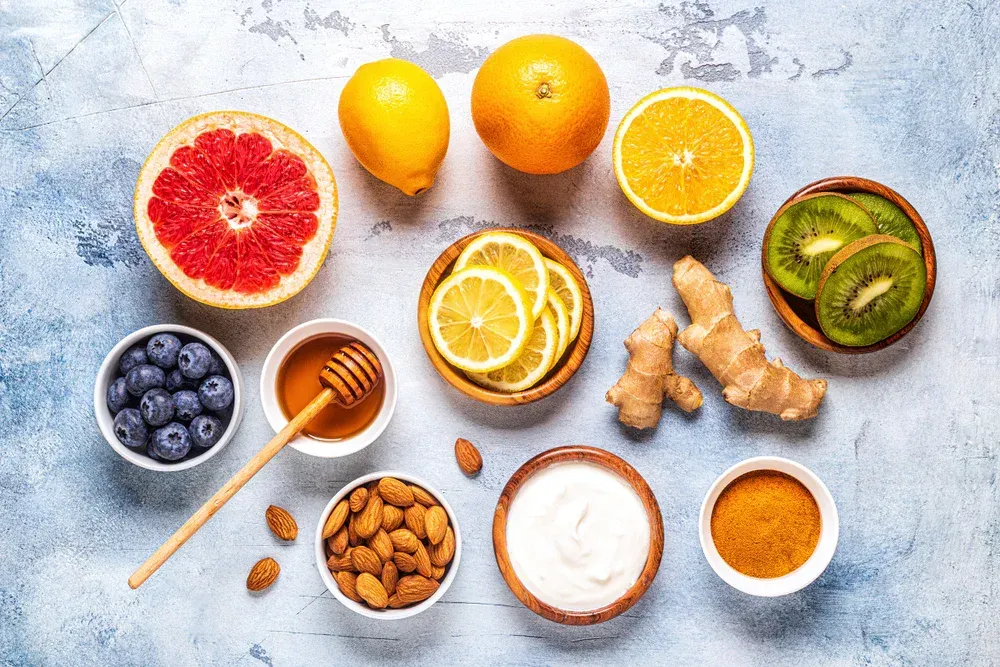
Author: Laurel Clayton-Seheult, PN1 Master Health Coach - April 29, 2025 Let’s set the scene: You’re bloated, burping like a frat boy, and wondering if your stomach secretly hates you. Your doctor runs some tests and bam—Helicobacter pylori enters your life like that one ex who texts “U up?” at 2 a.m. First, breathe. You’re not alone. H. pylori is a common bacterial party crasher in the gut. But here’s the twist: it doesn’t just make your stomach hurt—it can hijack your entire digestive vibe. The Good News: This is totally fixable—with a little help from science, food, and maybe someone who knows what “methylation” means. Step 1: Get a Nutritional Test (Not Just the Basic Kind) Think of it as a blood test, but with a glow-up (that only requires a mouth swab!). Instead of just checking your iron or cholesterol, it dives deep—like “under-the-hood-of-your-DNA” deep. Why? Because H. pylori doesn’t just throw your gut off—it can mess with nutrient absorption, detox pathways, and even your mood. Your body might be trying to do its job but running low on the building blocks it needs—like trying to bake a cake with no flour, eggs, or will to live. This is where the 3X4 Genetic Blueprint Test comes in. It’s like getting a personalized manual for how your body wants to function. It tells you: How your genes influence digestion, inflammation, and detox If you’re a methylation rockstar—or if your pathways are more “Netflix buffering” How you metabolize nutrients (spoiler: you and kale might not be a match made in heaven) Quick methylation breakdown (without putting you to sleep): Methylation is your body’s behind-the-scenes crew. It helps detox, repair cells, balance mood, and even produce energy. If it’s not working properly—thanks to genes, gut bugs like H. pylori, or nutrient depletion—you might feel tired, anxious, or just plain “meh.” So while you’re healing from H. pylori, this kind of insight is gold. It helps your nutrition coach stop guessing and start customizing—because your gut deserves a healing plan as unique as your Netflix recommendations. Step 2: Hire a Nutrition Coach (AKA Your Food Therapist) After H. pylori, it’s tempting to panic-Google “anti-inflammatory superfoods” and build a diet based on kombucha and prayers. A nutrition coach helps you cut through the chaos and learn to love food again. They’ll help you: Rebuild your gut lining (think bone broth, not broken dreams) Eat in a way that doesn’t trigger your already annoyed digestive system Decode supplements without needing a PhD in biochemistry Quit blaming gluten for everything (unless, y’know, it is the problem) They also hold you accountable—because let’s be honest, left to your own devices, you’ll be Googling “Can I eat nachos on a gut-healing protocol?” And honestly, there most likely "is" a version of nachos that you can totally enjoy! Step 3: Laugh (Seriously) Gut health can be overwhelming, but stress makes everything worse. Laughter really is medicine (no copay required). Plus, nothing bonds you to your nutrition coach faster than admitting you ate a gas station burrito and now feel like a balloon animal. Final Thought: You’re Not Broken H. pylori is a pain, but it’s also a wake-up call. With the right tests and the right coach, you’ll go from “Why does everything I eat hurt?” to “Pass the sweet potato, I’m thriving!” So say goodbye to chronic indigestion, confusing food rules, and living in fear of your own stomach. You’ve got this. Your gut is about to make the ultimate comeback tour.
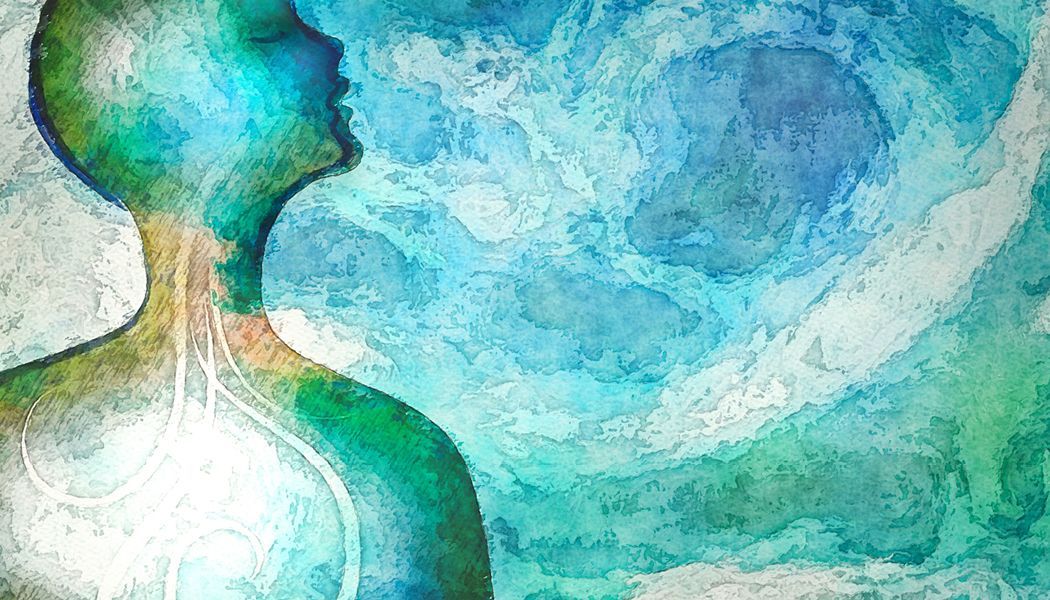
Sometimes what didn't work out for you - worked out for you! By: Dr. Stephen Wise, PsyD, CCTP - Life is full of disappointments, ranging from minor letdowns to devastating blows that feel impossible to recover from. Disappointment is a complex emotion, often intertwined with sadness, a sense of loss, or even failure. While disappointments are inevitable, how we process and respond to them shapes our ability to move forward. As the image I posted reminds us, sometimes what seems like a setback may actually be clearing the way for something bigger and better. Disappointments arise when expectations go unmet—and let’s be honest, living without expectations is nearly impossible. From a young age, we are surrounded by societal, familial, and personal pressures that only grow as we navigate adulthood. These expectations drive us toward success and happiness, but they also make us vulnerable to disappointment when life doesn’t go as planned. To help you face and move through these moments of disappointment, I’ve outlined seven practical steps for processing emotions and moving forward productively: 1. Acknowledge and Feel Your Emotions The first step in healing is to allow yourself to experience the full range of emotions—sadness, anger, hurt, or even despair. Give yourself the space and grace to adjust to what has happened. While it’s important to feel your emotions, don’t let them consume you indefinitely. Healing begins here, but survival requires forward movement. 2. Practice Acceptance Denial keeps you stuck. Accept what happened so you can shift into a problem-solving mode. Reflect on past experiences where you overcame setbacks—what strategies helped you regain your footing? Acceptance doesn’t mean giving up; it means letting go of resistance so you can reclaim your momentum. Dwelling on negativity can lead to stress, anxiety, and depression. A positive outlook can help you maintain emotional balance, reduce the mental toll of disappointment, and foster a sense of hope. 3. Resist the Trap of Self-Pity After acknowledging your emotions and accepting reality, avoid falling into self-pity. Dwelling on "why me?" will only drain your emotional energy and keep you from feeling empowered. Disappointments can actually empower growth and often reveal areas where you can learn, improve, or pivot. By focusing on the lessons within the setback, you turn what feels like failure into an opportunity for personal or professional growth. 4. Let Go of Self-Blame It’s easy to internalize disappointments and blame yourself, but often, many factors contributing to an outcome are beyond your control. Recognize the difference between accountability and unfair self-blame and show yourself compassion. 5. Keep Perspective Put this experience into context within the broader scope of your life. Ask yourself: how significant will this moment feel a year from now? Challenges are opportunities to grow stronger and more resilient. Life’s "speed bumps" may feel jarring, but they prepare us for navigating even greater challenges. 6. Reflect and Learn Every disappointment holds a lesson. What has this experience taught you about your goals, priorities, or values? In my own journey, a significant disappointment helped me realize what I truly wanted from my career, leading me down a new and fulfilling path. Give yourself time for reflection and be open to the possibilities that follow. 7. Take Action Channel your energy into identifying the next opportunity. The excitement you felt for what didn’t work out can resurface as you pursue new goals. Don’t let pessimism or fear of failure hold you back from future prospects. With each new step, you’re moving closer to something better. How you handle difficulties can inspire those around you. Demonstrating positivity can encourage others to face their own challenges with grace and determination. Summary Disappointments, while painful, can become turning points in our lives. By processing our emotions and staying focused on the bigger picture, we not only recover but often emerge stronger, wiser, and more prepared for what lies ahead.

Origami, the traditional Japanese art of paper folding, offers much more than beautiful creations—it’s a hands-on activity that fosters creativity, patience, and focus. For neurodivergent children , origami can be particularly beneficial as a therapeutic tool and a form of self-expression. Its structured yet flexible nature provides a calming activity that helps to develop fine motor skills, enhance spatial reasoning, and build confidence. Origami’s repetitive, step-by-step processes can be soothing for children who thrive on routine, while the tactile engagement of folding paper offers sensory input that can help with self-regulation. Additionally, completing an origami model provides a sense of accomplishment, boosting self-esteem and encouraging perseverance. Origami offers numerous benefits for adults , including stress relief, enhanced mindfulness, and a sense of relaxation. It improves cognitive skills like memory, spatial reasoning, and problem-solving while also enhancing fine motor coordination. Emotionally, origami fosters creativity, boosts self-esteem through a sense of accomplishment, and serves as a therapeutic tool for managing anxiety and trauma. Socially, it promotes connection through group activities and cultural appreciation. Additionally, it has practical uses in decoration and problem-solving, making it a versatile and enriching activity for adults. In this introduction, I will explore how origami can be adapted to meet the unique needs of neurodivergent children and adults. Improved Concentration and Mindfulness: Origami requires attention to detail and concentration. As you follow instructions and manipulate paper, your mind becomes fully engaged in the present moment. Practicing mindfulness through origami can enhance cognitive abilities and improve overall focus. Enhanced Fine Motor Skills: The delicate nature of origami encourages fine motor skill development. Precise folding and coordination between fingers improve dexterity. This benefit is particularly relevant for children and older adults who want to maintain or enhance their motor skills. Boosted Creativity and Problem-Solving Skills: Origami encourages creativity by allowing you to transform a simple sheet of paper into intricate shapes, animals, or objects. Solving folding puzzles and experimenting with different designs stimulate problem-solving abilities. Sense of Accomplishment and Self-Esteem: · Completing an origami project provides a sense of achievement. Even simple creations can evoke feelings of pride. · This boost in self-esteem can be precious for individuals dealing with anxiety or depression. Social Interaction and Bonding: Origami can be a social activity. Participating in workshops, classes, or group sessions allows people to connect with others who share their interests. Collaborative origami projects can strengthen relationships and create a sense of community. Therapeutic Applications: Origami is used in therapeutic settings for various conditions, including stroke rehabilitation, injury recovery, and mental health issues. It promotes cognitive function, hand-eye coordination, and emotional well-being. Cultural Appreciation and Connection: Learning origami exposes individuals to different cultures and their artistic traditions. It fosters an appreciation for the beauty of simplicity and minimalism. Stress Relief and Relaxation: The repetitive and focused nature of folding paper encourages mindfulness, helping to calm the mind and reduce stress. Engaging in a creative activity like origami provides a mental break from everyday concerns. Practical Applications: Origami pieces can be used for gifts, decorations, or personalized items. The principles of origami have applications in engineering, medical devices, and design. In conclusion, origami is a powerful yet simple tool that promotes mental well-being by fostering relaxation, mindfulness, and creativity. Its accessibility and versatility make it an effective practice for reducing stress, enhancing cognitive and emotional resilience, and facilitating social connection. Origami’s adaptability makes it a powerful tool for parents, educators, and therapists seeking accessible ways to support neurodivergent children and adults in their growth and development. By embracing this ancient art, we not only help children and adults build confidence and resilience but also foster a sense of accomplishment and wonder that carries over into all aspects of their lives.

Post by Dr. Stephen Wise, December 18, 2024: Post Traumatic Stress Disorder (PTSD) is a psychological disorder that occurs in response to experiencing or witnessing a traumatic event, such as a severe accident, natural disaster, combat, sexual assault, or other life-threatening situations. It can cause intense, disturbing thoughts and feelings related to the trauma that persist long after the event has ended. Supporting a family member with PTSD requires a sensitive, compassionate, and informed approach. Below I have listed strategies that are tailored to family dynamics. Understand Common Symptoms of PTSD Intrusive Memories: People with PTSD often experience unwanted, distressing memories of traumatic events. This can include flashbacks where they feel like they are reliving the event and nightmares that disrupt sleep. The intrusive memories also create intrusive thoughts – which are uninvited reminders of the trauma. These intrusive thoughts tend to increase during vulnerable states of exhaustion, depression, or other stressful events. Avoidance: Individuals may go to great lengths to avoid places, people, or activities that remind them of the trauma. They might also avoid talking or thinking about what happened. This will often lead to "hyper-vigilance" when in public places. Negative Changes in Thoughts and Mood: PTSD can lead to feelings of hopelessness, emotional numbness, and detachment from loved ones. It can also cause memory problems, particularly related to the traumatic event, and lead to negative beliefs about oneself or the world. Hyperarousal: This refers to being in a constant state of heightened alertness. Symptoms include being easily startled, tense or "on edge," having difficulty sleeping, and experiencing angry outbursts. This too, can cause “hyper-vigilance”. Understanding How PTSD Feels Overwhelming Fear or Anxiety: Those with PTSD often live in a state of fear, even when there is no danger present. The trauma feels as if it is happening again, and the world may seem unpredictable and unsafe. Isolation and Loneliness: Due to the avoidance of triggers and emotional numbness, individuals with PTSD might feel disconnected from others and struggle with relationships. Shame and Guilt: Many people with PTSD feel guilty for what happened or ashamed of their reactions, even if they had no control over the traumatic event. There is a tendency to "internalize" traumatic experiences and begin to feel responsible for them in some way. Understand Treatment and Recovery Treatable Condition: PTSD is a severe mental health condition, but it is treatable. Effective treatments include therapy (such as cognitive-behavioral therapy or EMDR), medication, and support from loved ones. Recovery is Possible: With appropriate treatment and support, individuals with PTSD can manage their symptoms, regain control over their lives, and work toward healing. Guidelines for Supporting a Family Member with PTSD Listen and Validate: Allow your loved one to talk openly about their trauma but at their own pace. Acknowledge their feelings without judgment (remember if they have internalized their feelings about the event, they may already feel guilty). Encourage them to Seek Professional Help. Offer to help them find a trauma therapist and support their treatment plan. Create a Safe Environment: If their home feels like a safe haven, this will minimize their triggers and reduce stress and flashbacks. Understand that healing from PTSD is a gradual process – there will be good days, and bad days. Help them adopt healthy coping skills: Encourage self-care and activities that promote relaxation and well-being (exercise, hobbies, or mindfulness). Understand and Respect Their Boundaries. Expect that they may need time alone to process their thoughts and emotions. Respect their need for personal space without taking it personally. Practice Self-Care: It is important to take care of your mental health. Consider joining a support group or seek counseling for yourself. Be Consistent. Trust is a crucial component of PTSD recovery. Provide consistent (rather than erratic) support to your family members. Emergency Preparedness: If your loved one faces severe symptoms such as suicidal thoughts, it is essential to have a plan in place – know emergency numbers to call, and other resources that may be part of a suicidal "safety plan” (if your loved one is in therapy, a safety plan will have been developed by their therapist). Finally, Celebrate Their Progress: Recognize and celebrate the small victories in their journey to recovery. This kind of positive reinforcement can be encouraging and build motivation. Conclusion Family support is a crucial part of the recovery process for someone with PTSD and may require a long-term commitment. By creating and fostering an environment of understanding, patience, and consistent support, you can help your loved one navigate the healing process.

Courage is not a static trait but an evolving art of arriving at and embracing it. It’s the conscious decision to face fear and uncertainty head-on, even when the path ahead seems daunting. By cultivating this courage, you don’t just muster the strength to confront challenges; you also equip yourself to walk through them with resilience and grace. This process of arriving at courage allows you to move beyond hesitation and directly engage with life’s hurdles, turning each step into an act of bravery and self-discovery.
Let's Talk
The first step in therapy is talking. Let's find a time where we can meet and talk about what's on your mind.
